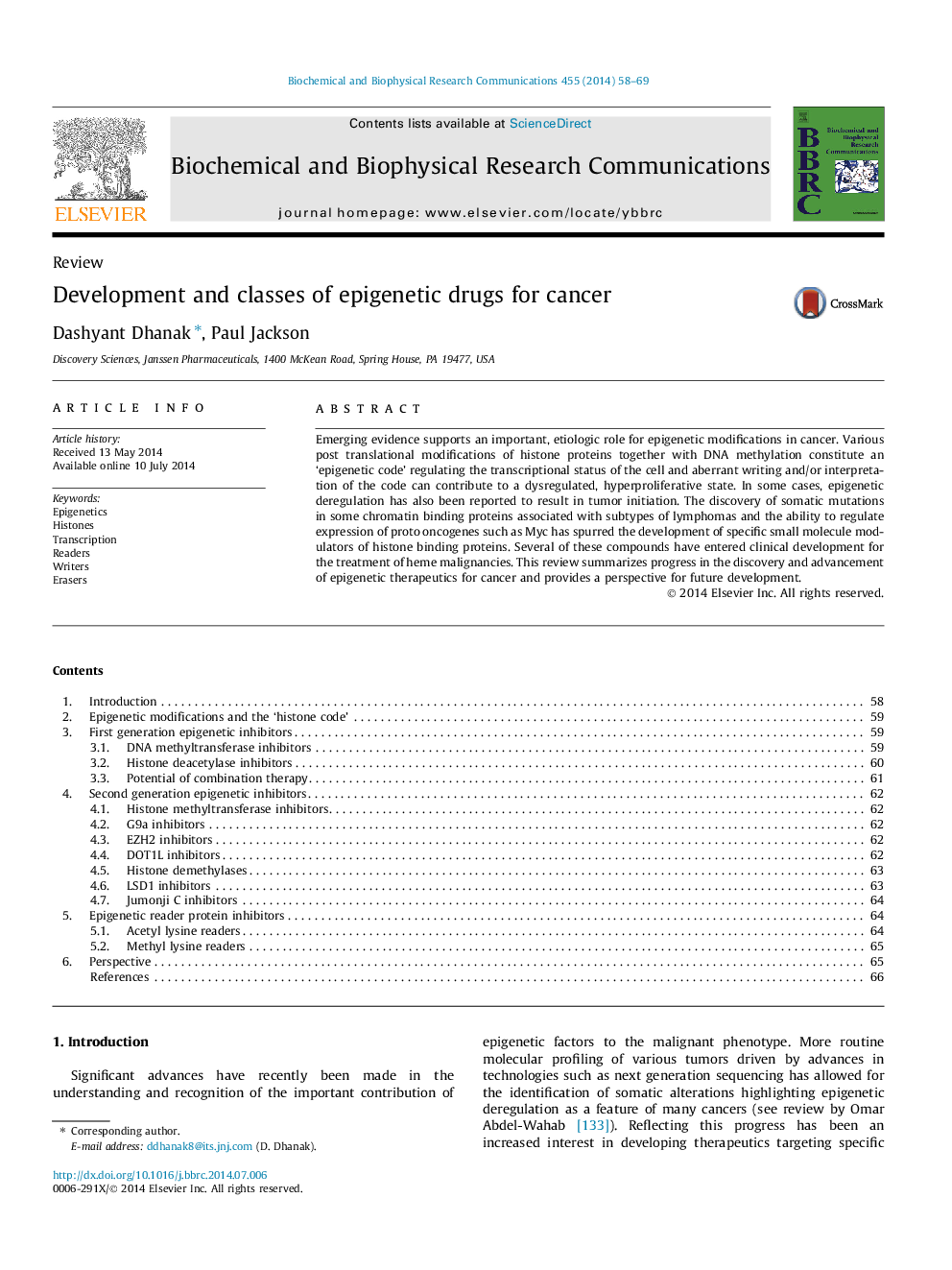| Article ID | Journal | Published Year | Pages | File Type |
|---|---|---|---|---|
| 1928343 | Biochemical and Biophysical Research Communications | 2014 | 12 Pages |
•Epigenetic deregulation is a feature of many cancers.•Novel therapeutics targeting chromatin associated proteins are in development.•Epigenetic regulation of proto oncogenes and tumor suppressors has been observed.•Combination therapy with epigenetic drugs holds promise for clinical benefit.
Emerging evidence supports an important, etiologic role for epigenetic modifications in cancer. Various post translational modifications of histone proteins together with DNA methylation constitute an ‘epigenetic code’ regulating the transcriptional status of the cell and aberrant writing and/or interpretation of the code can contribute to a dysregulated, hyperproliferative state. In some cases, epigenetic deregulation has also been reported to result in tumor initiation. The discovery of somatic mutations in some chromatin binding proteins associated with subtypes of lymphomas and the ability to regulate expression of proto oncogenes such as Myc has spurred the development of specific small molecule modulators of histone binding proteins. Several of these compounds have entered clinical development for the treatment of heme malignancies. This review summarizes progress in the discovery and advancement of epigenetic therapeutics for cancer and provides a perspective for future development.
